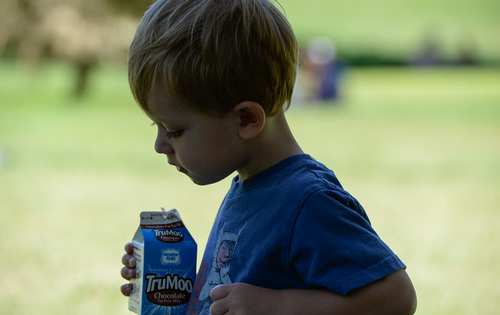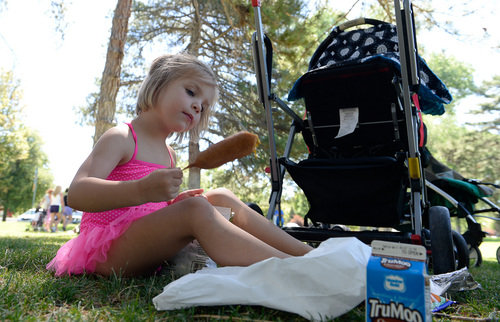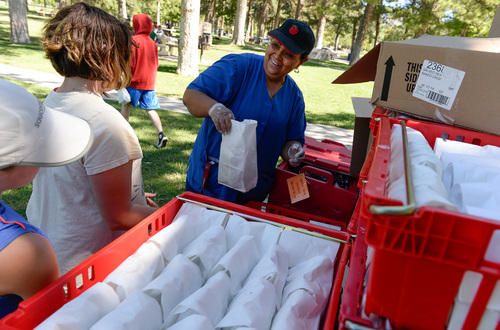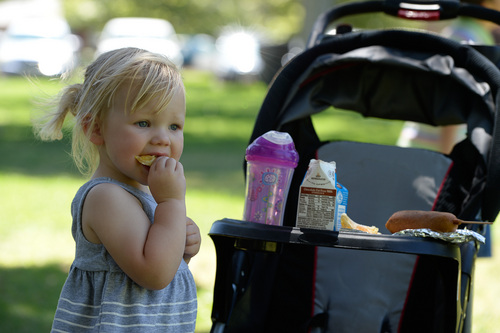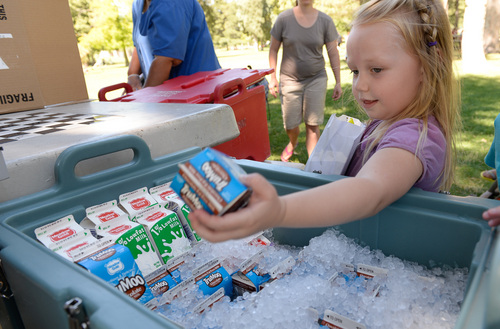This is an archived article that was published on sltrib.com in 2014, and information in the article may be outdated. It is provided only for personal research purposes and may not be reprinted.
Utah ranks 11th in the country for child well-being, the first time in five years the state has improved in overall quality of life for its youngest citizens, according to a report released Tuesday.
The Annie E. Casey Foundation ranked states according to economic well-being, education, health, and family and community as part of its annual Kids Count report. The foundation found Utah improving when it came to education and health but sliding when it came to child poverty.
Last year, the state ranked 14th overall. Utah ranked No. 3 in 2009.
In 2012, about 15 percent of Utah children — or about 132,000 kids — lived in poverty, up from 11 percent in 2005, according to the foundation.
Terry Haven, deputy director of Voices for Utah Children, which gets funding from the Casey Foundation, called it a "huge issue."
"Poverty affects everything we look at," Haven said. "We know it's the single biggest threat to child well-being in the state."
She said higher poverty rates are likely a result of the recent recession. Matthew Weinstein, of Voices, also blamed stagnant wages, and noted that it's a national trend.
"When you start having middle class families losing jobs and ... just a couple paychecks away from disaster, it's going to happen," Haven said.
Parent Bryan Britton, eating lunch at Salt Lake City's Liberty Park on Monday with his wife and four kids, said he wasn't surprised to hear about the poverty measure.
Each day during the summer, families across the state gather at parks and schools for free kids' lunches, meant to help ensure children get enough to eat when school is out. The lunches are available to anyone regardless of income.
"Sometimes, when you've got a bigger family like ours, with the expense of things nowadays, it's kind of hard to keep up with everything," said Britton, a corrections officer.
Salt Lake City parent Stacee Calderon, who also brought her kids to Liberty Park for lunch Monday, said she knows people who are struggling financially, often because of a lack of education.
But she said she thinks Utah does a good job of helping those who need it.
"I think there are a lot of resources out there to help kids," Calderon said.
Two bright spots of the report were in children's health and family and community. The state ranked second in the country on family and community, and fourth in the nation on child health, with lower percentages of children without health insurance, child deaths and teens abusing drugs or alcohol than in years past.
According to the report, Utah's child and teen death rate dropped by 37 percent between 1990 and 2010, from 38 to 24 deaths per 100,000 kids.
Janet Brooks, a child advocacy manager with Intermountain Primary Children's Hospital and a Voices board member, attributed the drop to, among other things, better car safety laws for kids.
Since 1990, the state has passed laws requiring more kids to be in carseats, booster seats and placing restrictions on new teen drivers.
"Over the past 20 years we've really worked to increase and change public policy and legislation that will protect children," Brooks said.
Haven said Utah's improved ranking shows lawmakers have made some good decisions in recent years. But she said there's still room for improvement. For example, Haven said she'd like to see a state earned income tax credit to help working families, expanded Medicaid and longer lasting welfare benefits for adults, among other things.
"We know what we have to do. The data tells us what we have to do," Haven said. "It's just a matter of do we have the political will to help us get there."


